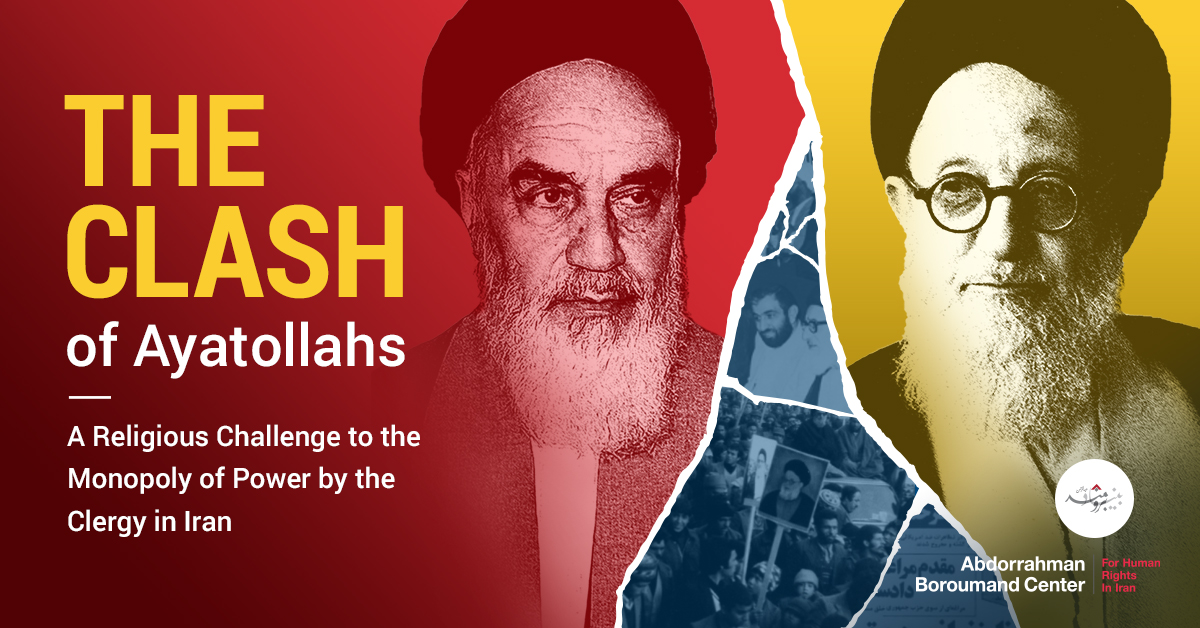
43 years ago today, on February 11, 1979, Iran witnessed a revolution that transformed - democratically, we are told - the monarchy into a theocracy. The official narrative regarding the democratic nature of this transformation, which Iranians fought hard to prevent, is not based on facts. A wide range of groups and actors had, throughout 1979, challenged the unelected revolutionary leaders’ attempt to force religious authoritarianism on their country. In the winter of 1979, millions of Iranians joined in a movement that took the struggle to a new level. Helmed by Seyyed Mohamamd Kazem Shariatmadari, a grand ayatollah, and the Muslim People’s Islamic Republic Party (MPIRP), a milions-strong opposition rose to reject a constitution drafted by Ayatollah Khomeini’s loyalists, insisting on national sovereignty and accountable power. This contest between two Ayatollahs, overlooked and erased from memory, is key to understanding the political impasse Iranians face today thanks to the constitution; a constitution erected not on democratic consent and compromise, but electoral manipulation, demonization, and physical violence. More than four decades later, Abdorrahman Boroumand Center for Human Rights in Iran (ABC) brings light to the story of this clash of Ayatollahs.
“At a time when many citizens openly question the legitimacy of the Islamic Republic, the history of how an anti-democratic constitution was drafted and installed over widespread protest is vital for any discussion about political change and democratization” says ABC Executive Director Dr. Roya Boroumand.
It is true that in March 1979, Iranians voted in overwhelming favor of an “Islamic Republic” - a form of government left undefined in a simple “yes or no” referendum. Ayatollah Khomeini, the Revolutionary Council, and the Islamic Republic Party (IRP) which gathered his supporters, mobilized to install their vision of an unaccountable clerical rule grounded in the principle of velayat-e faqih or “guardianship of the jurist.” With the blessing of Ayatollah Khomeini, they used their power, manipulation, electoral fraud, demonizing rhetoric, and physical violence and intimidation. In the IRP-dominated Assembly of Constitutional Experts, which most political groups boycotted, the pro-velayat camp hurriedly drafted and in early December 1979 advanced for referendum a highly contested constitution enshrining the unchallengeable power of a Supreme Leader. The constitution was voted upon in a referendum widely boycotted by secular and religious groups.
The pro-velayat camp had no interest in reconciliation. Though government leaders entered into talks with Ayatollah Shariatmadari, they did not take concrete action to meet protester demands - as noted and protested by Ayatollah Shariatmdari. In a campaign of rhetorical and physical violence, Ayatollah Khomeini and velayat supporters - aided by some leftist allies who cast the MPIRP and its movement as an imperialist plot - worked to discredit and silence their opponents. At the end of the episode, Ayatollah Shariatmadari’s supporters faced live fire, arbitrary trials, and extrajudicial killings, while the cleric himself, who had called his supporters to retreat to avoid a civil war, was stripped of his platform and religious authority, to die a few years later of cancer for which he was denied timely treatment.
“The constitution of the Islamic Republic is the chief obstacle to meaningful political reform. To overcome it, the history of how this constitution came to be and its lack of legitimacy should be part of the conversation” said Boroumand.